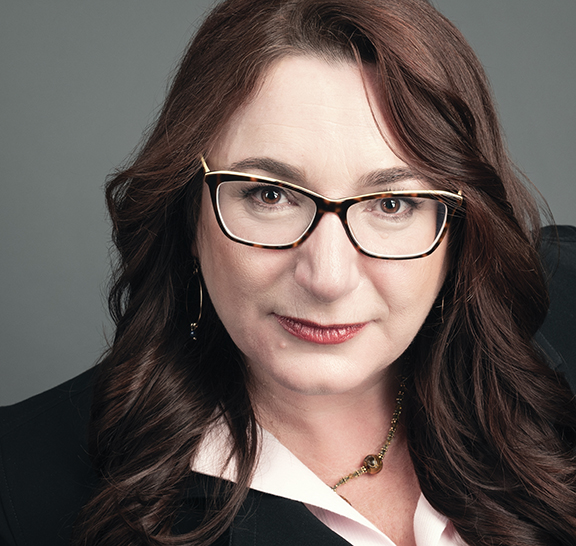Leah Pistorius
August 2, 2022
How HCDE Professor Beth Kolko is setting the stage for entrepreneurs to flourish, and PhD Student-turned-CEO Melinda Haughey is bringing her HCDE education to the core of her new company.
Planting seeds

Beth Kolko, HCDE Professor and Venture Partner at Pack Ventures and Pioneer Fund
Beth Kolko, HCDE professor, entrepreneur, and now venture capitalist, wants to demystify the company-building process and diversify the startup playing field.
Kolko is the founder of Shift Labs, a medical technology company that builds affordable medical devices for global markets. After several years building up the company from scratch, Kolko is bringing what she learned from the startup world to HCDE, where she teaches a course called Designing a Human Centered Venture.
“Founding a startup made me realize how valuable the HCDE habits of mind are to everything that goes in to building a company,” she said. “You can develop your business model, figure out who your customers are, how you will make money, etc. But the strength that HCDE can bring is an additional layer that considers things like inclusivity, sustainability, and the impact the company has on the world. In my HCDE class, I help students ask things like, who are the secondary and tertiary users and what will this company’s impact be on them? What are the environmental impacts?”
UW students are smart, creative, and, uniquely, about 30 percent of our students are first-generation college students, which is a huge strength. We have a great opportunity to broaden the type of leaders who are building companies, and the type of companies that will change the world for the better."
Raising money for a company is something Kolko has experience with as well, and a landscape that she wants to see change. Kolko is a Senior Venture Partner in Pioneer Fund, a community of investors who went through the Y Combinator startup accelerator, and she recently signed on as a venture partner at Pack Ventures, an early-stage venture capital firm to support UW entrepreneurs.
“UW students are smart, creative, and, uniquely, about 30 percent of our students are first-generation college students, which is a huge strength,” Kolko said. “We have a great opportunity to broaden the type of leaders who are building companies, and the type of companies that will change the world for the better.”
In addition to expanding the pool of people who have access to venture capital, Kolko wants to break down barriers to wealth generation. “Venture investing is a way to build generational wealth. It used to be that you had to write a million-dollar-plus check to invest in a venture. But with these new funds, like Pioneer and Pack, people can write smaller checks. You don’t have to already be wealthy to participate. And that’s another way I see this changing the landscape, and why I’m really excited to be involved.”
Kolko believes HCDE students and alumni are uniquely equipped to build companies that will change the world for the better. “We are at a critical inflection point and I think it’s time for HCDE entrepreneurs to take the reins,” she said. “In the past few years, the tech industry has had a reckoning around inequality and problematic or even bad-faith design. And here we are, with our curriculum that’s ever-refining to focus on equitable and inclusive design, and with a critical mass of HCDE graduates out in the world. It’s a perfect time for HCDE students and alumni to build their ideas into companies and have a hand in remaking the world to be more inclusive, accessible, and sustainable.”
Starting up

Melinda Haughey, HCDE PhD Student and CEO at Proxi
Melinda Haughey is a PhD student in HCDE and the co-founder of Proxi, a company that helps people build and share interactive maps.
Proxi originated as a side project for Haughey. Safe trick-or-treating became even more important during the pandemic, and Haughey wanted to help her neighbors find and share information about what their trick-or-treating protocol was at their homes. The project was highly successful, with over 2,300 homes around Seattle adding information to the crowdsourced map. “After that, people started reaching out with other mapping ideas,” Haughey described. “Someone said they wanted a map for their hometown that just got hit by a hurricane. Someone else wanted a map for their family trip that their siblings could all collaborate on. I realized there was a big opportunity here, and started building Proxi.”
Haughey teamed up with a business partner and a developer to build their minimum viable product—the basic technology that would be needed to make maps. During that time, she enrolled in Professor Beth Kolko’s HCDE course, Designing a Human Centered Venture, and started thinking about the deeper elements of building a company. “Beth really pushed us to consider the ethical elements of the business model,” Haughey described. “In addition to thinking about viability and profitability, we were asked to consider, ‘should you build this thing?’ ‘In what cases shouldn’t you build this thing?’ It really led me to think deeply about who this company will serve.”
Through HCDE, I’ve been able to build a strong foundation in knowing how to build something that is valuable for people and knowing how to think deeply about the ethics of that technology."
Haughey wants people to have a better experience with maps and believes that by making maps easier— and more fun—to create, navigation will be easier for everyone. “There are really bad maps out there. So many maps are screenshots of other maps, the points are roughly positioned, and then they’re saved as a PDF with no interactivity. It can be hard to figure out where you want to go or how to get directions.” Haughey said.
Proxi is a free, drag-and-click tool for making maps. Creators can add points, customize their maps style, and invite others to contribute to it. Maps can be shared on social media or embedded on websites or apps. On Proxi’s list of featured maps, you’ll find community maps such as “Black and Minority Owned Businesses,” “Seattle Area Sledding Hills,” and even “Budget Friendly Guide to UW,” created by the UW’s student paper The Daily. As of Spring 2022, over 3,000 maps have been made with Proxi, with about 25 maps being created each day. Haughey and her team are beginning to roll the platform out to other cities, starting with Austin.
The growth is exciting to Haughey, but she says her HCDE background has taught her to be thoughtful about decisions related to the platform’s growth. Haughey’s HCDE doctoral work focuses on misinformation and disinformation, research that she says contributes to the core of how Proxi functions, including what features to add and when to add them. “As an example, one of our most requested features is to add commenting,” she said. “But, as I know from my research into Facebook, Instagram, and TikTok, is comment sections are places where misinformation really spreads. And not only that, they’re also really hard to monitor. So, we’re thoughtful about features like this, especially when we don’t have the bandwidth currently to moderate or prevent bad comments or hateful things on the platform.”
Haughey appreciates the support from the HCDE community during this phase of growth for Proxi. In addition to receiving seed funding from Pack Ventures, the Proxi team has worked with HCDE students on a usability study of the map-building experience, and with a capstone team to create the first iteration of an app design.
“Through HCDE, I’ve been able to build a strong foundation in knowing how to build something that is valuable for people and knowing how to think deeply about the ethics of that technology. I am excited to see more HCDE entrepreneurs out in the world, who are working to build the core of a company from the inside out. And, I’d love to hear from others in the HCDE community about your experiences with Proxi, so go make a map at Proxi.co, and let me know what you think!”
HIGHLIGHTS FROM 2021-2022 YEAR
2022 Designing Up
View this story and others in HCDE's annual publication, Designing Up, where we highlight activities and accomplishments of HCDE's students, alumni, and faculty.
View the 2022 issue